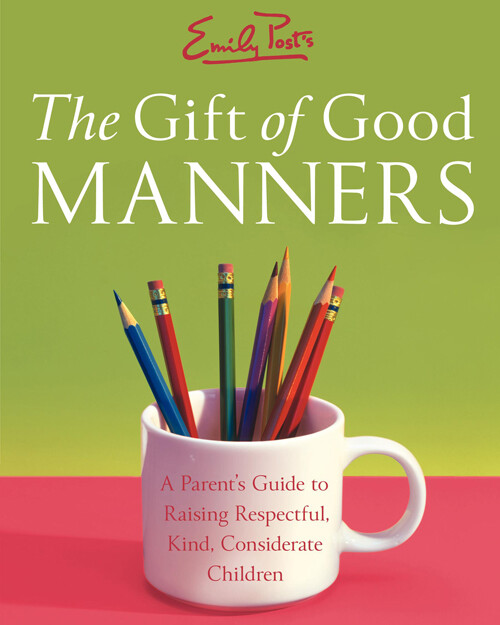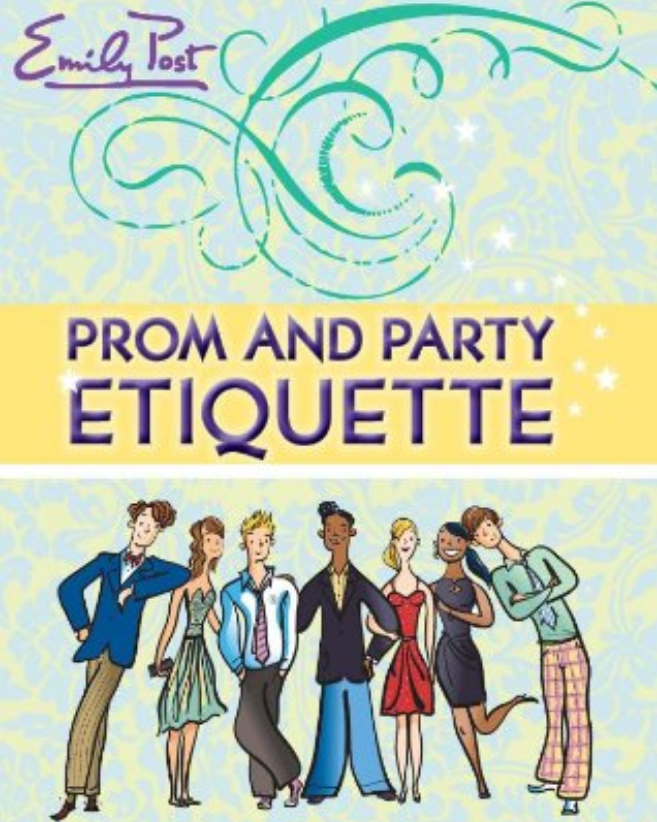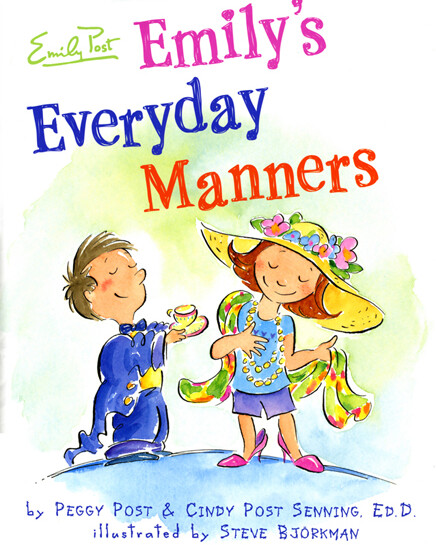
The Gift of Good Manners - A Parent's Guide to Raising Respectful, Kind, Considerate Children
The Gift of Good Manners - A Parent's Guide to Raising Respectful, Kind, Considerate Children
By Cindy Post Senning, Peggy Post
The Gift of Good Manner‘s is the answer for parents who want to engage with raising polite, thoughtful, and respectful children at every stage of their development. A survey by Public Agenda—a non-partisan public policy research group—found 84 percent of survey participants believe a major cause of disrespect in American society today is too many parents failing to teach respect to children. However, 60 percent also agreed that even when parents try to “raise their kids right,” there are too many negative role models in society that teach kids to be disrespectful. While complaints are plentiful, solutions seem scarce in the 60-page summary of findings on rudeness in America.
Can respect be taught? Are parents failing to teach manners to children? Can a 14-year-old boy be convinced that table manners matter? How can you help a child withstand teasing and bullying without becoming resentful? What to do when another parent’s or teacher’s rules vary greatly from your own? Was it easier to teach manners to children forty years ago?
Answers and solutions are found here, in The Gift of Good Manners. Peggy Post and Cindy Post Senning, Ed.D.—the third generation family members of Emily Post—argue that manners are unquestionably essential for every child’s lifelong success and self confidence.
According to Peggy Post, “Manners education is inseparable from the other things a parent or primary caregiver must do to raise a responsible, self-sufficient child. It’s not a kind of add-on to be attended to after the schoolwork and the soccer, ballet, and piano lessons are done. Instead, teaching and modeling good manners are integral to daily family life.”
The Gift of Good Manners is organized around three key principles: 1) it is best to model and teach manners virtually from birth to adolescence; 2) manners education is most effective when geared to a child’s normal development; and 3) Mannerly behavior gives both children and adults the self confidence to navigate daily life.
The book is divided into six sections, based on age, from birth through the high school years. In each chapter, manners and teaching methods are geared to children’s particular capabilities during those years. Each section of The Gift of Good Manners is divided into five chapters that deal with core manners topics including:
- Values and ethics: For each age: how to model and teach the values you want to instill in your child—from empathy and truthfulness to sportsmanship and self-discipline.
- Respect for self and others: One of the fundamental principles of etiquette. It’s importance and how to teach it at any age. Building relationships with sibling, peers, family members, coaches and teachers; sharing; good sportsmanship; care of personal property, and taking responsibility for chores.
- Spoken and written communications: The art of conversation, listening and speaking skills, on the telephone, e-mail, writing letters and thank-you notes-the importance of the learning to be a good communicator.
- Table manners: from the mechanics of eating to the social aspects of dining, an age by age guide for teaching manners at the table.
- Out and about: For any situation outside the home: restaurant outings, in the car, on the school bus, attending parties, introducing people, shopping, going to a friend’s house or the library. Everything you need to know to teach your child to handle these situations.
According to Cindy Post Senning, the book’s approach is positive: “Rather than talking about problems that need to be fixed, we help parents teach kids to develop the right instincts and behaviors from the start. We believe kids—even teenagers—can and want to be respectful, kind, and considerate.”
The Gift of Good Manners focuses on understanding and modeling the principles and values that are the foundation of manners, and then shows parents ways to help their children take on these values and make them their own. The Posts also weigh in on topics such as children with special needs, the over-programmed child, etiquette for the new American family, overcoming obstacles in parent-to-parent relationships, dealing with problems at school and helping your teenager through the college application process. These sections, called “For Every Age” are found at the end of each section.



















